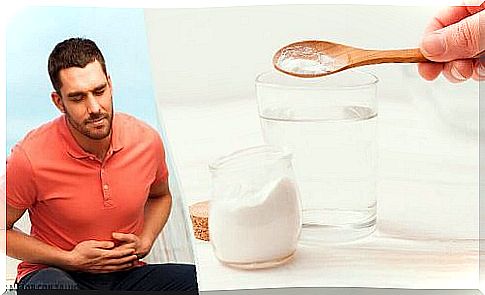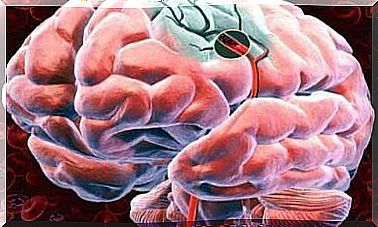Antacids

Excessive production of acid by the stomach, problems with a hiatus hernia commonly known as reflux and various other problems with the digestive system are conditions that regularly deal with almost half of the world’s population.
However, any type of antacid , whether pharmaceutical product or natural, should be used with caution and as directed by doctors to avoid any harmful side effects.
But if you’re already taking some antacids , it’s worth your while to learn how to get the maximum benefits they offer while keeping side effects to a minimum.
So, in our article today we will look at some of the most important aspects that you absolutely need to know about this topic. We invite you to read!
Antacids: 10 things you need to know about them
If you are interested in antacids, you probably also use them. Whether you are taking them frequently or only occasionally, there are some important things you should know about them. Here are the top 10:
Avoid self-treatment at all costs
Since you don’t need a prescription to purchase antacids, many people tend to take them regularly whenever they deem it necessary.

High blood pressure
Certain medications and antacids cause numerous problems in patients with high blood pressure. They are also not recommended for those who have or have had kidney stones. You should also avoid them if you have problems with bowel movements.
The need to follow an individually adapted treatment procedure
It is extremely important to contact a specialist for an individually selected diagnosis. Only then will you be sure that you are taking antacids optimally matched to your abilities and ailments.
Specialists will recommend specific products for you based on your specific needs. They will also consider taking other medications regularly or following a low sodium diet. In addition, they will also ask you if you are taking any supplements that are high in calcium.
Antacids are intended for occasional use
Antacids are prescribed to help you with certain occasional episodes of acidity. They may also be used to relieve symptoms of a burn in the esophagus or an upset stomach. However, you shouldn’t take them for too long.
In addition, you should definitely not even consider including these foods in your daily diet.
If your heartburn or acidity does not improve after taking antacids for a week, you should go back to see your doctor. Because keep in mind that someone who does not follow the advice of specialists exposes their body to much more serious health problems.

Neither are antacids intended for people who suffer from certain diseases. Some of these diseases include, but are not limited to, appendicitis, stomach ulcers, kidney stones, or other digestive system problems.
Taking antacids is usually also associated with some side effects. For example, some patients begin to experience dizziness, nausea, and even headaches after swallowing drugs with such properties.
Be careful with some minerals in the composition of such drugs
Moreover, some antacids can cause other discomforts which disappear spontaneously when treatment is stopped. For example, magnesium-based preparations can cause diarrhea. On the other hand, those based on calcium or clay can cause persistent constipation.
In addition, although not common, calcium-containing antacids can cause kidney stones. Conversely, taking aluminum-based medications too often can cause an accelerated loss of calcium in the bones. And the result of this phenomenon will be osteoporosis.
Most of the minor problems with excess stomach acid are closely related to high levels of stress. Therefore, try your best to contain your stress and anxiety levels in your daily life.
Also, do not take more than one antacid at the same time. Also, remember not to combine it with drugs that are proton pump inhibitors (PPIs) or H-2 blockers. Or at least unless your doctor tells you otherwise.
Avoid unhealthy diets
An unhealthy diet is synonymous with numerous health problems. Among the common consequences of its use, you will usually find problems with the stomach and the digestive system in general.

Your food should be properly balanced. They must contain plenty of fresh fruit and vegetables. You should also eliminate foods made from industrially processed flour or with added sugar from your diet. Likewise, avoid foods that contain too much unhealthy fat.
Problems with diet and eating in general also include skipping meals and eating too quickly. It is important to chew each bite of your meal properly. Eating foods and drinks with extreme temperatures (very cold or hot) too often can also contribute to digestive problems.
Products completely prohibited in the case of acidity
People who struggle with ailments caused by excessive secretion of gastric acid should completely eliminate products such as coffee or alcohol from their daily diet. In some cases, you may also need to avoid chocolate.
Additionally, smoking can seriously affect your stomach. Of course, in a negative way.
Natural remedies and mild antacids
Fortunately, we know some natural options for relieving the symptoms of excessive gastric hyperacidity before going to the doctor for clinical treatment. A large glass of water is the first remedy to take when you start to feel the first symptoms of an upset stomach.

It is a proven method to effectively treat the symptoms of hiatus hernia and hyperacidity. Additionally, it is very useful as a temporary solution.
Ginger
Ginger root has been used for many centuries as a great way to relieve stomach and digestive discomfort.

It is an important natural remedy for treating digestive problems due to its ability to block gastric acid secretion. It also effectively prevents the formation of ulcers. The effectiveness of ginger in this matter is confirmed by the results of many scientific studies.
In addition, it also acts as a natural form of covering the gastric mucosa.








